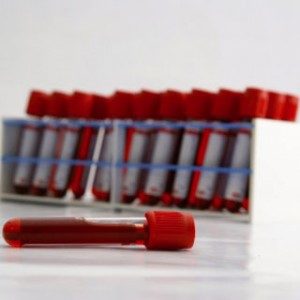After a year-and-a-half of grueling litigation, Judge Bernstein of the Maricopa County Superior Court issued a landmark ruling by granting the Motion to Suppress the blood tests. For years, attorneys for the 11 defendants led by Mark D. DuBiel, W. Clifford Girard Jr., Joe St. Louis, and Lawrence Koplow, have been challenging the scientific reliability of the gas chromatograph blood-testing machine used by the Scottsdale Crime Lab. The decision comes after a 17-day long Evidentiary Hearing spanning over 6 months including testimony from seven different witnesses representing either the Defense or the State, thousands of pages of testimony, evidence, and notes.
 Court documents and evidence submitted during the 17-day Evidentiary Hearing leading up to the Court’s ruling showed that for the past 4 years, faulty machinery at the Scottsdale Crime Lab has been used to convict Scottsdale residents accused of DUI. The machine has actually mislabeled and mis-numbered vials, transposed data from one vial to another, and in some instances failed to collect any data. Software flaws in the data storage system have created scenarios where these erroneous (but seemingly fine) results are disclosed to prosecutors, who may or may not be investigating any problems. Underscoring all of these errors is the fact that the Crime Lab shreds the original documents from these cases.
Court documents and evidence submitted during the 17-day Evidentiary Hearing leading up to the Court’s ruling showed that for the past 4 years, faulty machinery at the Scottsdale Crime Lab has been used to convict Scottsdale residents accused of DUI. The machine has actually mislabeled and mis-numbered vials, transposed data from one vial to another, and in some instances failed to collect any data. Software flaws in the data storage system have created scenarios where these erroneous (but seemingly fine) results are disclosed to prosecutors, who may or may not be investigating any problems. Underscoring all of these errors is the fact that the Crime Lab shreds the original documents from these cases.
Many points were raised in the 21-page decision order, which ultimately suppressed all of the results. Below are a few issues raised in the court’s decision:
1. State experts gave testimony about whether they believed the machine was working. However, during the Evidentiary Hearing emails obtained via public documents requests by the Arizona Republic surfaced. The contents of these emails indicated an entirely different set of beliefs. It came to light that the lab had attempted to replace software on the machine multiple times. They refer to the machine as “problematic,” and “malfunctioning,” and discuss concerns about its reliability.
The Judge found:
“This Court finds it incredible that neither Ms. Whitman nor Ms. Valdez were unaware of the email, or made mention of it during their testimony.”
2. Multiple serious problems existed in this time frame, including mislabeling vials and transposing vial information from on vial to another. The Crime Lab did not catch this issue until during the hearing, 2 years after it had happened.
3. The Court ruled that it “looks to supervision and oversight in making its evaluation.” Yet this information was undisclosed, and encouraged to be withheld for years by supervisors. The Defense community appears to be the only supervising body demanding transparency and disclosure of issues.
Based on the machines malfunctions, Scottsdale Crime Lab’s failure to determine the basis behind the machine’s issues, and the misleading testimony provided by Scottsdale Crime Lab criminalists, Judge Bernstein ruled to suppress the blood tests as they were unreliable:
“…based upon the evidence presenting during the course of these proceedings, the Court is convinced that the principles and in particular, the methods were not properly applied…”
Thousands of blood tests have been done on this machine since it was first put into use in 2009. Many of those cases have since been resolved, either through trial or through plea agreement, without this information ever being disclosed. Today’s decision is a step in the right direction towards recognizing that science matters, and that the rule of law firmly requires that evidence meet standards of reliability.




